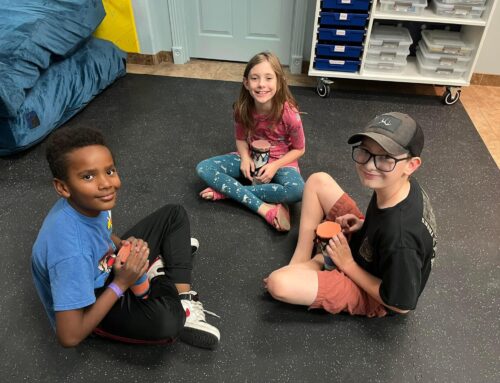
-
- Early Intervention typically refers to services provided to children from the ages of birth to three. Early intervention services can include occupational, physical and speech therapies. It can be overwhelming when a child is diagnosed with a disability or identified with a delay. The good news is that early intervention services can help set the stage for success for your child.Who is Early Intervention For?
Early intervention is beneficial for both children that have a diagnosis that may impact their development and those children who are just delayed on milestones. Children with spina bifida, down syndrome, cerebral palsy, hip dysplasia, or other congenital conditions often need intervention in order to promote development and aide in meeting critical milestones. Sometimes, a parent or physician will notice that a child is not achieving their developmental milestones as they should. Early intervention services can help a child with a developmental delay hit motor, speech, and feeding milestones.Why is Early Intervention Important?
During the first few year of life, children are learning and growing at rapid paces. Those first years are critical for setting the stage for critical life-long skills. By providing intervention during this crucial time period, outcomes are improved. Additionally, for children that have a diagnosis that impacts their development, early intervention can help with accommodations, assistive devices, and techniques to help facilitate development.Early Intervention Services
Physical therapy addresses gross motor development. Some of the skills an early intervention physical therapist may work with your child on include:- Rolling Over
- Sitting Up
- Head and Neck Control
- Walking
- Crawling
Occupation therapy addresses fine motor development and sensory processing. Some skills early intervention occupational therapists may work with your child on include:
- Self-feeding Finger Foods
- Sensory Processing
- Holding Crayons or Writing Instruments
- Grasping
Speech therapy is more than just language development. Speech therapists not only address speaking and language delays, they also work with children on cognitive development and feeding and swallowing. Speech-language pathologists can work with your child on:
- Swallowing
- Eating Habits
- Communication Skills
- Expression of Needs and Wants
The benefits of early intervention are countless. If you have concerns about your child’s development, ask your child’s pediatrician if early intervention therapy services can help them with their development.
- Early Intervention typically refers to services provided to children from the ages of birth to three. Early intervention services can include occupational, physical and speech therapies. It can be overwhelming when a child is diagnosed with a disability or identified with a delay. The good news is that early intervention services can help set the stage for success for your child.Who is Early Intervention For?





